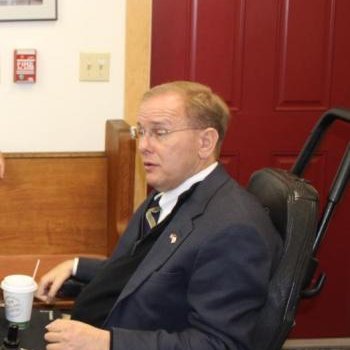By Cassius Shuman
“We should all have a healthy concern about cybersecurity in this country,” said Langevin. “Nobody uses the internet more than in the United States.”
Langevin, who is co-chair of the Congressional Cybersecurity Caucus, said that online security and global terrorism are the country’s two major threats. He noted that “raising awareness, cyber hygiene and password protection” are essential to protection from cyber threats.
Langevin said one of the “more vulnerable” internet networks in this country is the voter registration system. “The FBI and Homeland Security have evidence that the Russians, or foreign entities, have certainly been probing, trying to look into our voter registration system,” he said. “So everyone is working overtime to protect those systems. The state of Rhode Island, as well as the federal government, is working closely with Homeland Security to ensure that the voter registration systems are as safe and secure as possible.”
“The real danger is that they could undermine confidence in the country’s election system,” added Langevin. They could do that “by sewing doubt into whether an election outcome is genuine, legitimate, etc.”
With regard to Republican Presidential nominee Donald Trump joking that Russia should hack into Hilary Clinton’s email server, Langevin said he thought Trumps remark was “outrageous, highly objectionable and very disappointing. It’s another example of bringing the election, and campaign, to a new low.”
Langevin said that while cybersecurity presents its challenges, it also can provide job opportunities. “It’s a jobs issues we need to focus on. It’s an opportunity for our young people,” he said, “because we don’t have nearly enough people going into the Information Technology or cybersecurity fields. I hope that our young people will consider that as an option.”
Langevin noted that “there are a number of programs” he supports related to cyber-based careers. “CyberPatriot is one of those programs,” he said. “It’s a competition for kids that are good with computers. There’s also the Cyber Corps program. It’s a joint program between the Department of Homeland Security and the National Science Foundation.”
“We need more support for these programs,” added Langevin, noting his support of the Every Student Succeeds Act (2015), which is a new federal education law that replaced the No Child Left Behind Act (2001). “We have a skills gap in our state, and across the country.”
On Sept. 15, Langevin filed legislation called the Offshore Wind Incentives for New Development Act, which is aimed at ensuring extension of federal tax credits for offshore wind energy projects from 2019 to 2025. “It’s all complementary” in providing tax incentives for the offshore and renewable energy businesses in the northeast. “Sen. (Sheldon) Whitehouse is working with us on this,” he said. “He’ll be introducing the companion bill.”
Langevin said that he tries “to come out to Block Island whenever possible.” He noted that the boat ride was a little “rough” coming over to the island on Wednesday. “But I’m a guy who likes a little turbulence on an airplane, so I don’t mind a bumpy ride,” he said.




